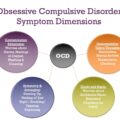What is antisocial personality disorder?
Antisocial personality disorder (ASPD) is a mental condition in which a person has a long-term pattern of manipulating, exploiting, or violating the rights of others without any remorse. This behavior may cause problems in relationships or at work and is often criminal.
By definition, people with antisocial personality disorder don’t follow society’s norms, are deceitful and intimidating in relationships, and are inconsiderate of the rights of others. People with this type of personality may take part in criminal activity. But if they do, they are not sorry for their hurtful deeds. They can be impulsive, reckless and sometimes violent. This disorder is far more common and more apparent in men than women.
ASPD is associated with co-occurring mental health and addictive disorders and medical comorbidity. Rates of natural and unnatural death (suicide, homicide, and accidents) are excessive. ASPD is a predictor of poor treatment response. ASPD begins early in life, usually by age 8 years. Diagnosed as conduct disorder in childhood, the diagnosis converts to ASPD at age 18 if antisocial behaviors have persisted. While chronic and lifelong for most people with ASPD, the disorder tends to improve with advancing age. Earlier onset is associated with a poorer prognosis. Other moderating factors include marriage, employment, early incarceration (or adjudication during childhood), and degree of socialization.
Alternative names of this condition include; Sociopathic personality; Sociopathy; Personality disorder – antisocial
What causes antisocial personality disorder?
Cause of this disorder is unknown. A person’s genes and other factors, such as child abuse, may contribute to developing this condition. People with an antisocial or alcoholic parent are at increased risk. Far more men than women are affected. The condition is common among people who are in prison.
Setting fires and animal cruelty during childhood are often seen in the development of antisocial personality. Some doctors believe that psychopathic personality (psychopathy) is the same disorder. Others believe that psychopathic personality is a similar, but a more severe disorder.
What are the symptoms of antisocial personality disorder?
A person with antisocial personality disorder may:
- Be able to act witty and charming
- Be good at flattery and manipulating other people’s emotions
- Break the law repeatedly
- Disregard the safety of self and others
- Have problems with substance abuse
- Lie, steal, and fight often
- Not show guilt or remorse
- Often be angry or arrogant
How is antisocial personality disorder diagnosed?
Antisocial personality disorder is diagnosed based on a psychological evaluation. The health care provider will consider how long and how severe the person’s symptoms are. To be diagnosed with antisocial personality disorder, a person must have had emotional and behavioral problems (conduct disorder) during childhood.
How is antisocial personality disorder treated?
Antisocial personality disorder is one of the hardest personality disorders to treat. People with this condition usually don’t seek treatment on their own. They may only start therapy when required to by a court.
Behavioral treatments, such as those that reward appropriate behavior and have negative consequences for illegal behavior, may work in some people. Talk therapy may also help.
People with an antisocial personality who have other disorders, such as a mood or substance use disorder, are often treated for those problems as well.
Outlook (Prognosis)
Symptoms tend to peak during the late teenage years and early 20s. They sometimes improve on their own by the time a person is in their 40s.
Possible Complications
Complications may include imprisonment, drug use, alcohol use, violence, and suicide.
When to Contact a Medical Professional
See a provider or a mental health professional if you or someone you know has symptoms of antisocial personality disorder.





